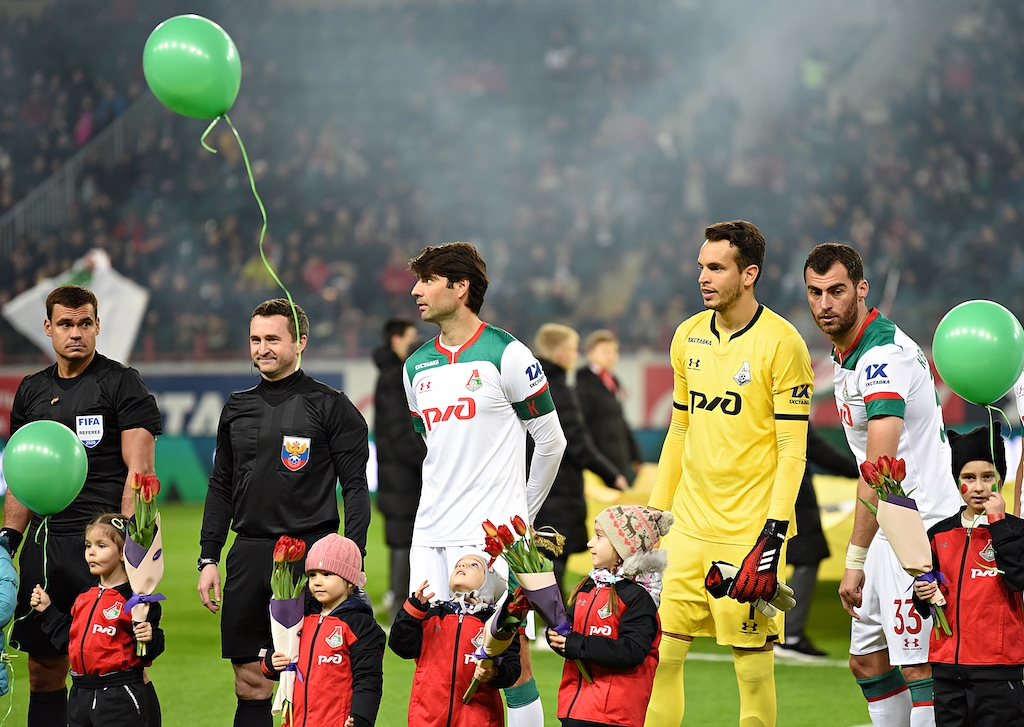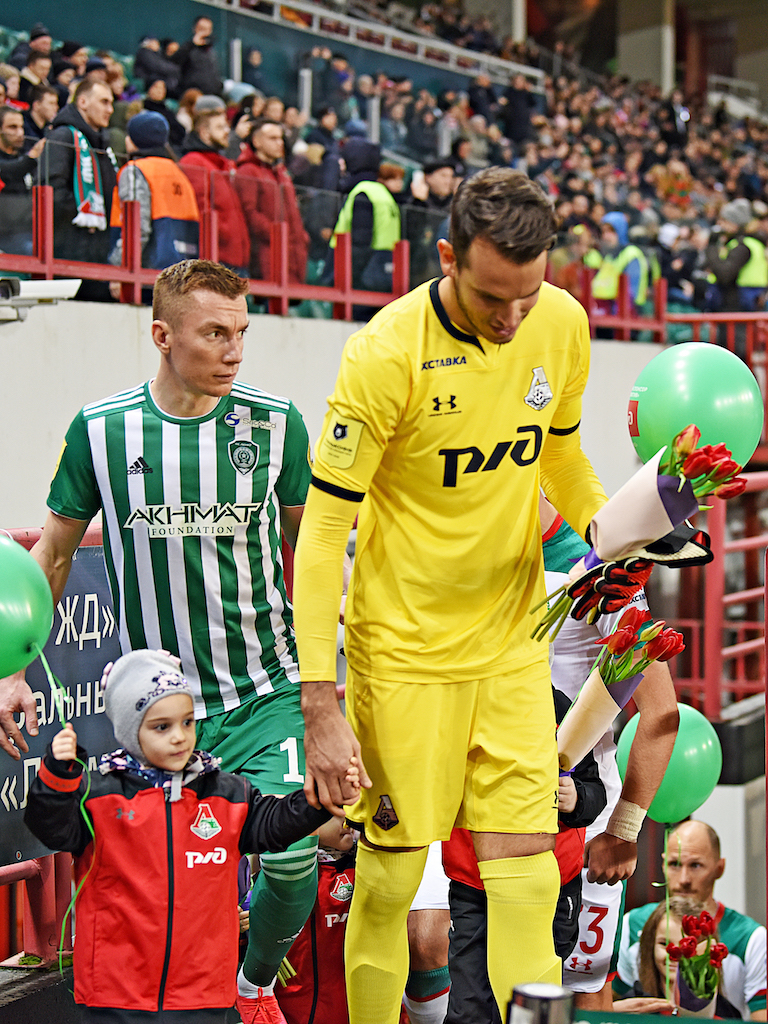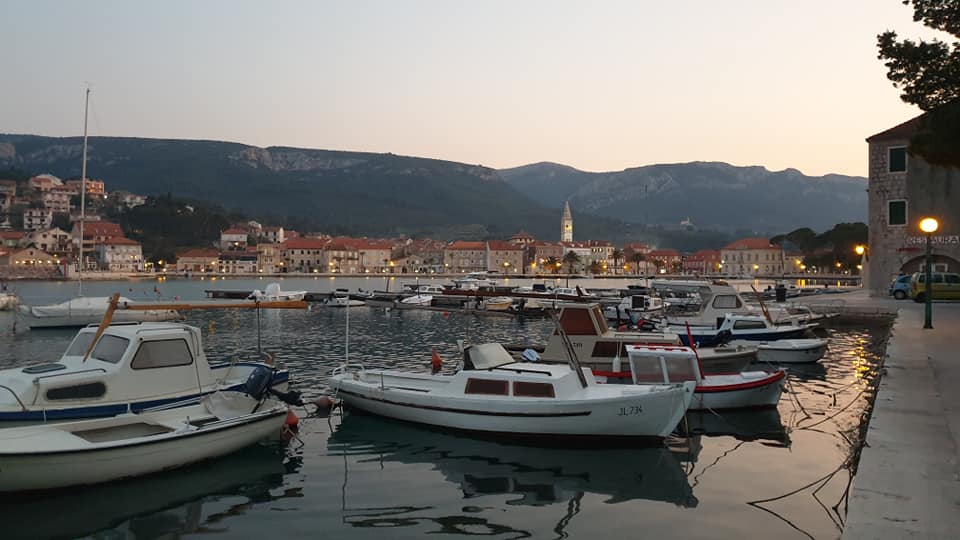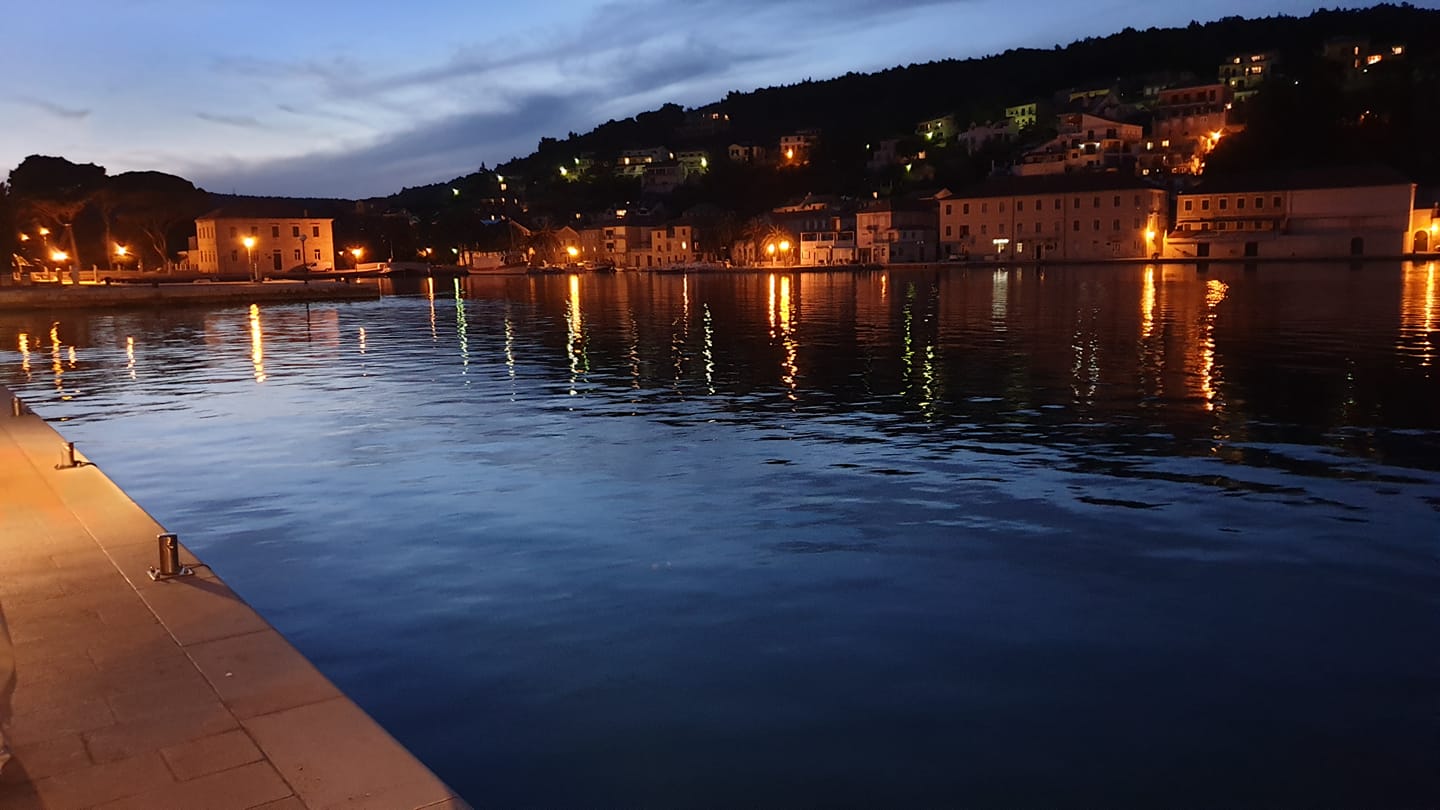Vedran Corluka to Stay in Moscow until 2021, and Maybe Longer?
April 21, 2020 - Vedran Corluka extended his contract with Moscow's first-team Lokomotiv until 2021 two months ago, and they are certainly counting on him after his professional career.
The 34-year-old defender is still the captain of the squad, and Russian media announced that he agreed with President Vasily Kiknadze in two minutes!
"Charli is an older brother to the young players, an excellent footballer, a leader on the field and in the locker room, and as an experienced player will be a great support to our academy graduates. He has been with us for a long time and we need a dedicated man to help develop our young players," Kiknadze emphasized.
Slobodan Kadic
It is no secret that our former national team member Corluka is well accustomed to living in the Russian metropolis and living in a penthouse on the 60th floor in central Moscow. The only thing that bothers him is the Moscow traffic jams.
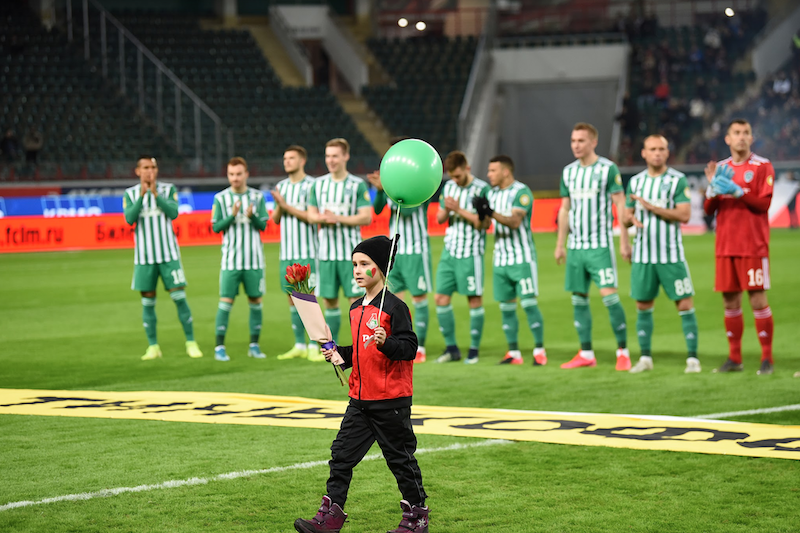
Slobodan Kadic
According to the current standings in the Russian Premier League, after 22 rounds, Lokomotiv is in second place with the same number of points as Krasnodar (41). Zenit St. Petersburg is in the lead, with Akhmat of Grozny taking the last place.
To read more about sport in Croatia, follow TCN's dedicated page.
Self-Isolation as It Once Was & How Croatian Tourism Can Compete on Price
April 21, 2020 - The Adriatic sea, self-isolation as it once was. As we dare to dream of a possible 2020 season, where Croatia should focus its efforts, and how can Croatian tourism compete on price?
Hvar has been gorgeous these last few days, before today's Manchester rain, as beautiful as I can remember it since I first set eyes on the island I subsequently fell in love with 18 years ago.
I am very fortunate to have been able to self-isolate here, and the social distancing and lack of visitors has meant that it almost feels like I have the island to myself.
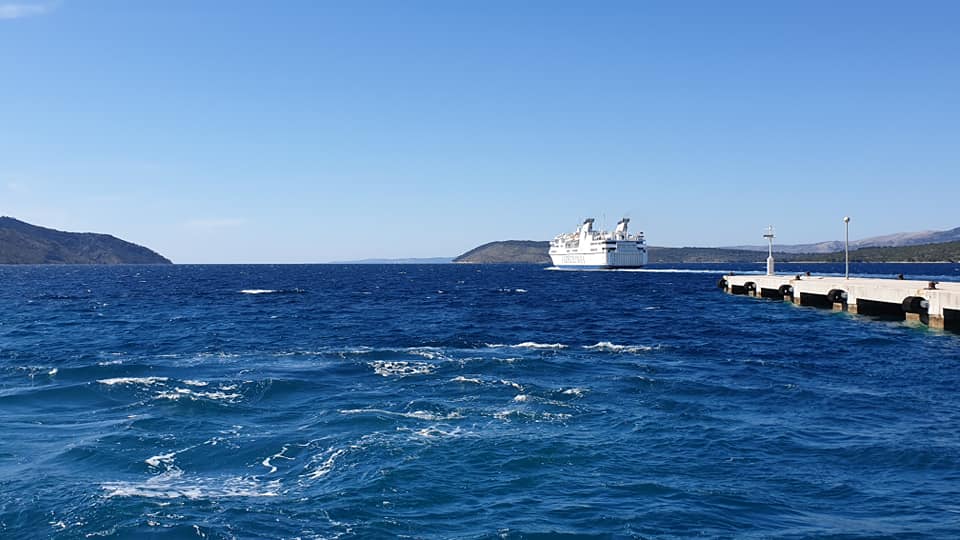
The weather is warm, the sea inviting, and the aromatic fields offer a variety of sensations, both visual and aromas.
It takes me right back to when I first became truly aware of tourism in Croatia, in a staff house in Hargeisa in Somaliland back in 2002.
The Mediterranean as It Once Was, the Croatian National Tourist Board video which came on during a commercial break on CNN - a commercial which changed my life and brought me to a new life in Croatia, where I have lived ever since.
And Hvar at the moment feels like it did all those years ago. It has changed considerably since then, of course, but now - devoid of tourists, its spectacular nature to the fore - it reminds me more than ever of the time I first discovered it 18 years ago.
The Mediterranean as It Once Was in 2002.
Self-Isolation as It Once Was in 2020.
And the tourists will return and new generations will fall in love with this magical island, as I did. The big question is whether that will happen this year, and whether or not there will be a 2020 season at all.
I have noticed growing optimism in recent days on the back of the slight easing of restrictions in various countries. There is talk of a Czech corridor for tourists to the Adriatic, and as the weather improves, the longing for lazy days on the Adriatic as the self-isolation drags on gets ever stronger.
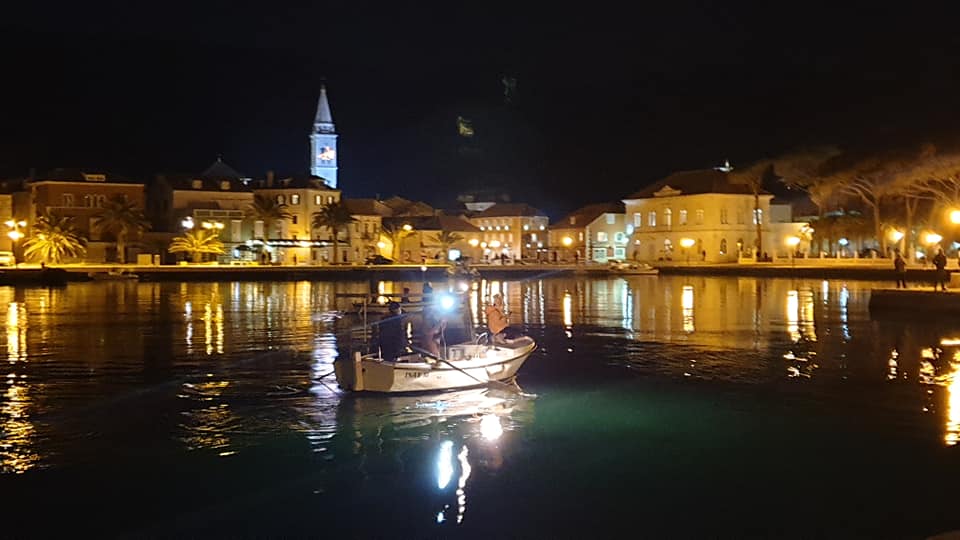
Will there be a season? Perhaps. I do not have a crystal ball, but as I wrote almost a month (and several lifetimes) ago in Hope v Reality: Will There Be a 2020 Tourist Season in Croatia?, if there is it will be different for sure, and there are several key factors to take into consideration.
Let's start with flights to Croatia.
Three things should paint the picture of flights to Croatia.

This was the lead banner on the Ryanair website when I wrote my article a month ago, offering deals on September breaks. One month later, the only thing which has been updated on the banner is the photograph.
The second-biggest budget airline - and a key player in the Croatian tourism market - is easyJet. This from an article on the closing of most of Lonely Planet's operations in The Guardian a few days ago:
Now, even Sir Stelios Haji-Ioannou of easyJet, the second-largest budget airline in Europe, thinks his company will feel like a startup again once national lockdowns are lifted.
And as we reported a couple of weeks ago in Goodbye Season 2020? American, Qatar Push Dubrovnik to 2021, Eurowings Cuts Fleet, the inter-continental airlines have already written off season 2020 in its entirety, while cutbacks at Eurowings and Lufthansa are also going to impact the Croatian market. American Airlines was due to fly until October from Philadelphia to Dubrovnik, and so their decision to cancel has less to do with the health threat of corona, and more to do with the economic consequences. With record unemployment in the States, there will be much fewer people travelling. And for many who do travel, price is going to be a big factor. A short hop to Mexico will be a better budget option.
Less flights is better news for Croatian tourism than the competition
Although less flights is not great news for the tourism industry, it will actually impact Croatia much less than the competition. Imagine the challenges ahead for the likes of Greece, Turkey, Egypt, Tunisia, even Montenegro, Spain and Italy, to get foreign tourists to their destinations. While Croatia has enjoyed considerable success in attracting long-haul tourists - United States, South Korea, China, Japan, Brazil and Australia come to mind - the vast majority of tourists arrivals (about 75% from memory) come by land, mostly car. Although the numbers will be less, there is much more certainty in these markets. As long as the virus is under control, borders open and the tourists have transport, they can and will come.
I was talking to an F&B manager in a 5-star hotel this week, and he told me that they were adding a lot of Austrian wines to the list, as they were expecting a much higher percentage of Austrians and Germans in the post-corona era. And if this survey is to be believed, a whopping 27% of Austrians want to holiday in Croatia when this is all over.
The markets of Slovenia, Austria, Germany, Italy, Switzerland, Hungary, Czechia, Slovakia, Poland and Serbia have always been important to Croatian tourism. And never more so than this year. And with the lack of flights and close proximity to Croatia, Croatia is in pole position to accommodate as many tourists as want and can afford to travel. And there is one big juicy bone that will be driving them wild with desire in their isolation.
Let's put progressive tourism on hold, for 2020 is all about the Adriatic
In the pre-corona era, I wrote a lot about the lack of strategy and vision of Croatian tourism, of overtourism on the coast and the over-reliance on the Adriatic. I presented an alternative vision in Branding Croatia for the Future: 5 Gifts and Trends to Focus On. I still stand by every word of this as a strategy for the future, but these are extraordinary times. And after all these restrictions and deprivation, the thought of a gorgeous beach and a dip in the glistening Adriatic has become a 'must-have' for many. I have been posting lots of photos and videos of Hvar on social media, and I can see the desire, the longing, and the promise to be on Hvar soon from many, many people.
As is often the case in the Kingdom of Accidental Tourism, a combination of factors will enable this tourism to happen 'slucajno', without any real effort - lack of flights mean other destinations are harder to get to, Croatia has what everyone wants - over 1,000 islands and 1,777 km of fabulous Adriatic coast, with every man and his dog desperate to escape to the sea. But if we could come up with an effective campaign and really play on those emotions and desires, the payback could be much higher. Perhaps Self-Isolation as It Once Was is not the right approach, but there are marketing departments with more resources and experience than this fat Irish blogger.
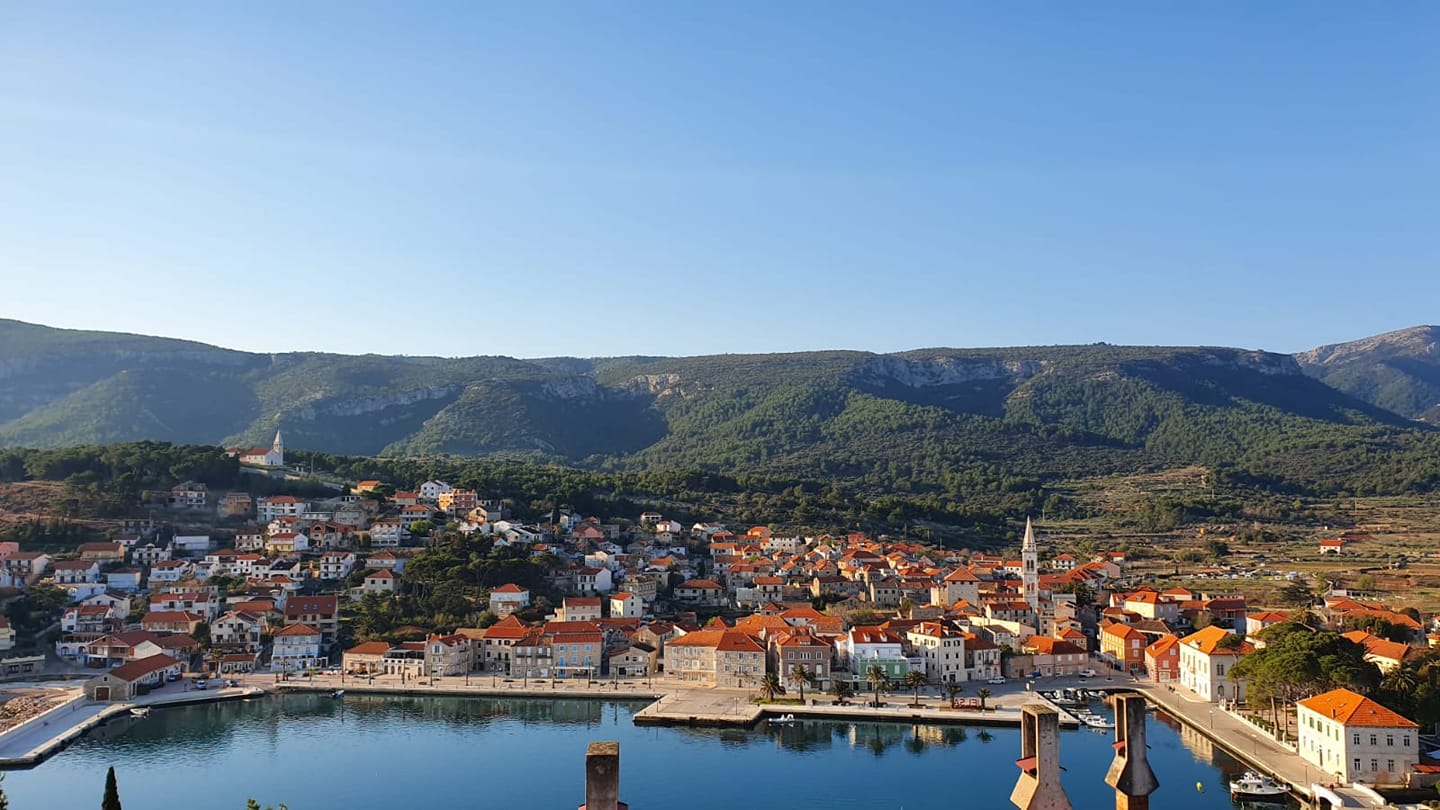
So IF we can have a season, then things perhaps look as dire as they might seem. Everything depends on the virus, of course. But assuming that all is ok for a later season start, the other main thing that could really affect things is...
Price, the Achilles heel of Croatian tourism, and how to fix this
I am really fascinated to see how the Croatian hospitality industry will respond to the realities of post-corona tourism with regard to pricing. I expect some to keep things exactly as they are, and even some to increase prices as they do each year without adding any extra benefit to the consumer. They will price themselves out of a much more price-sensitive market, and the traditional greed of some tourism businesses couple with the insane tax burden that is imposed on the tourism industry and the rest of the country, could nullify the golden gifts of restricted access to the competition and the proximity of the Adriatic.
But I believe a large number of businesses will be realistic about price and realign their prices accordingly. Better to make something from the season, give guests a great (and great-value) holiday, in the hope of enticing them back next year and beyond. But how to get the message of those cheaper prices out to potential visitors?
I have been trying to catch up with technology in recent months, and watching the Croatian Government's handling of the crisis has not only been a pleasant surprise, but also very instructive. From the Koronavirus Viber group which now reaches 441,000 subscribers with the latest in an instant (in a country of 4 million) to the dedicated corona app, Andrija. the authorities have very quickly and effectively been able to get their message out and engage with the public.
Which gave me an idea. Why not use a similar approach for promoting Croatian tourism, especially to get out the message on price, for those who wanted to price things realistically and encourage tourists to come?
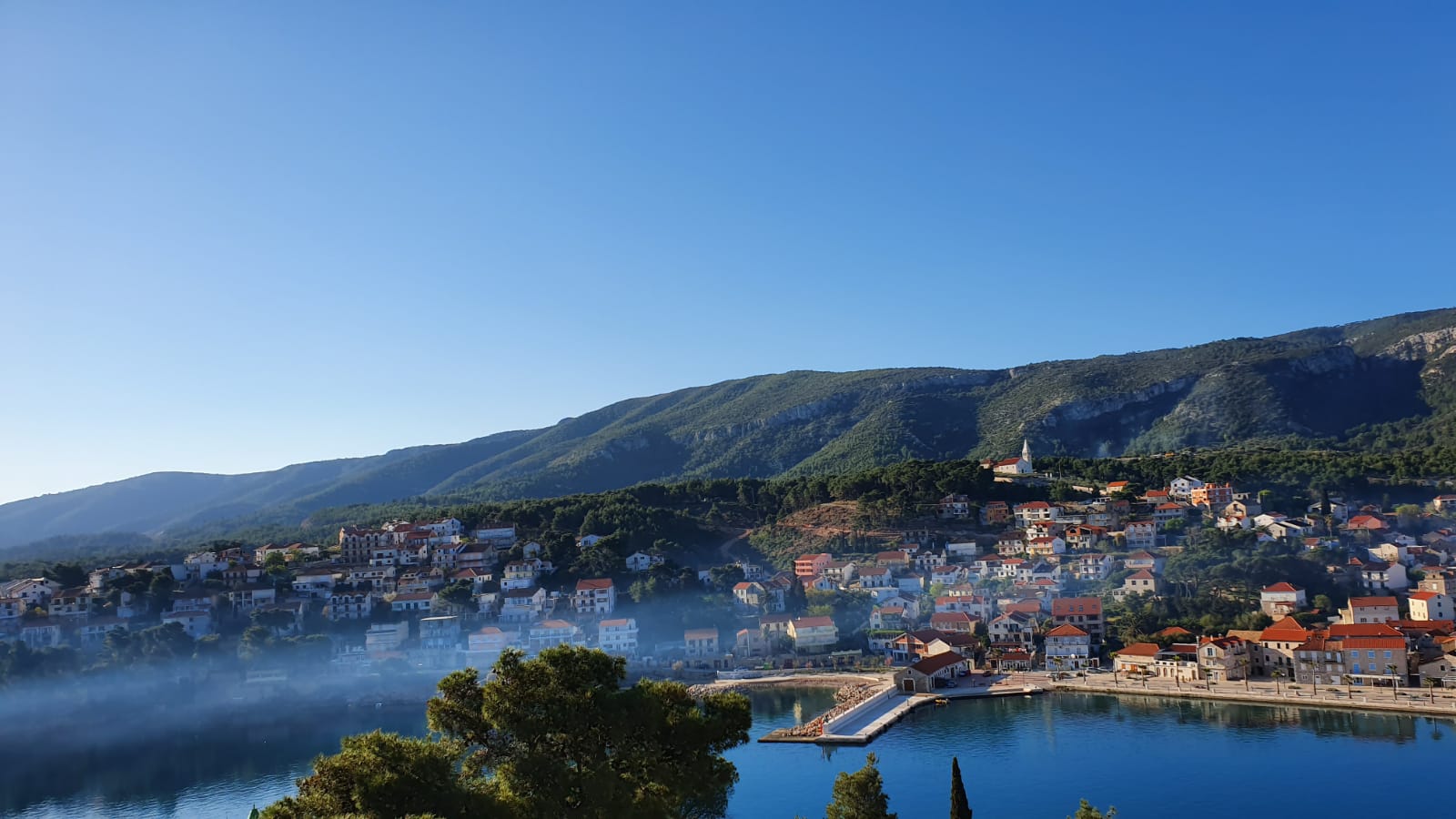
(Photo credit Taliah Bradbury)
Let's create an app called something better than Post-CROrona and make it available to any Croatian tourism business which wants to offer a realistic price for season 2020. Each business would get their own page within the map and category of tourism. On that page, the business could upload some basic info, a link to its pricing page of its official website, as well as details of 3 of its Post CROrona offers, and a stated % discount of its list prices to reflect the current reality. The business would be free to increase or decrease the percentage in real time.
If properly created and promoted, and if enough businesses decide to engage, this would bring all the tourism businesses in Croatia with affordable and realistic prices into one place. The potential tourist downloads the app, and can then see just how affordable Croatia 2020 could be if they decided to support the businesses offering the discounts.
Some nice free promo for the progressive businesses trying to get back on their feet, and some nice PR for Croatia against the accusation that is it an expensive destination. And some nice affordable holidays for those who do their homework and choose to relax in one of the most beautiful places on Earth.
Would it work? Who knows, but maybe, and maybe it is worth a try. Nothing is certain in the Corona Era, except one thing...
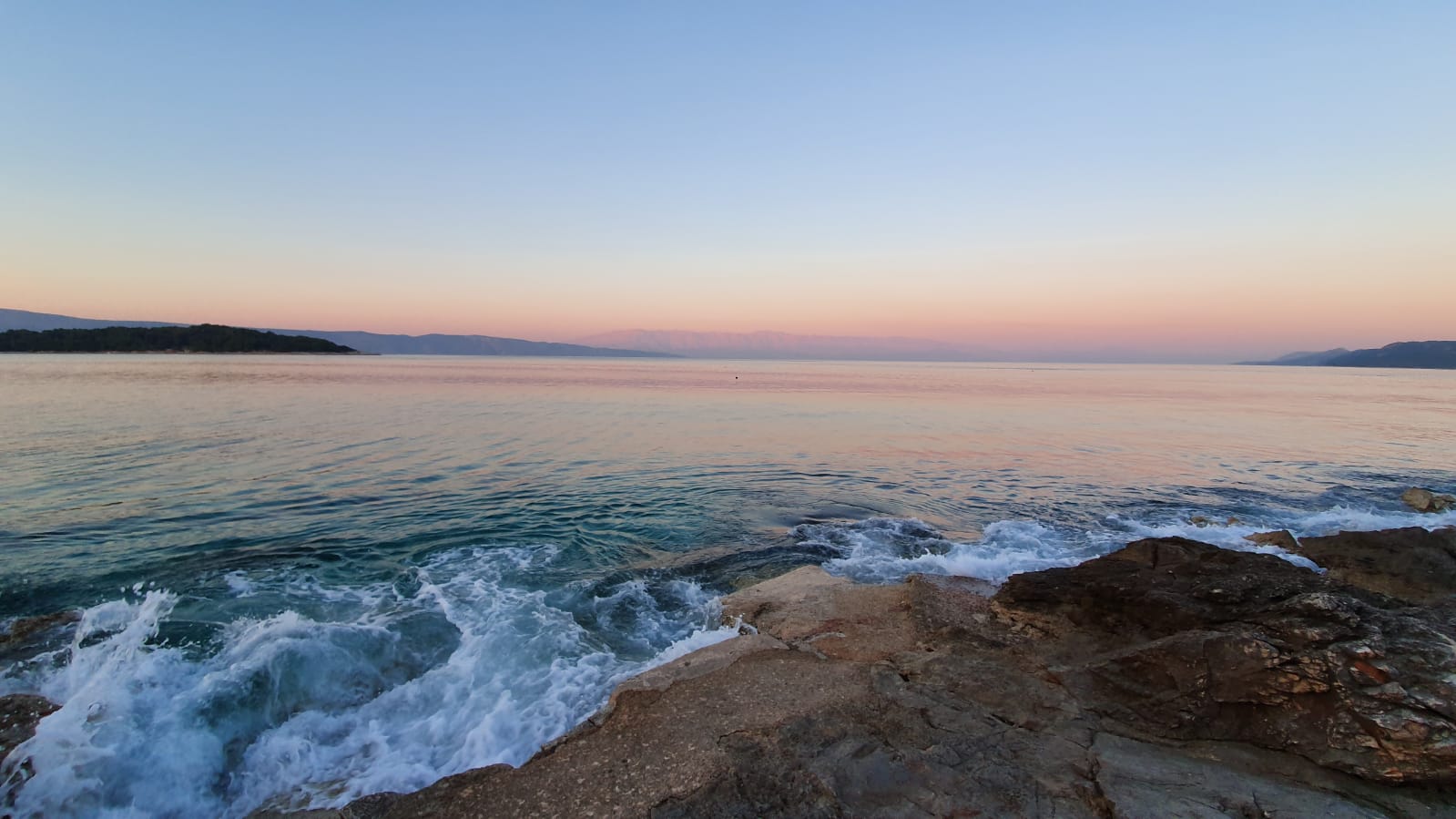
(Photo credit Taliah Bradbury)
Hvar is truly one of the most gorgeous places on the planet. As it will be when you make your next visit. Let's hope that can be this year.
For the latest news from Croatia's premier island, visit the TCN Hvar section.
Split Tourist Board Launches New Video Campaign 'Together in Split'
April 21, 2020 - The Split Tourist Board has launched a video campaign to inspire future tourists. Introducing 'Together in Split'!
We were delighted to announce a new video campaign by the Split Tourist Board, which was published on the VisitSplit Facebook page today. This video is an introduction to the #TogetherInSplit campaign created by a small team of members of the Split Tourist Board, led by director Alijan Vukšić, who was asked about the campaign and its expectations for the season.
A press release from the Split Tourist Board director:
"'Together in Split' is the name of a campaign that will, through creative content, inspire people to fantasize about the moment when they will be able to enjoy the beauties of our city and region again. It sends a message to tourists that we are together even though we are separated, which is just the meaning of the name of our city.
My team and I have been planning this campaign and the right time to launch it since day one of the crisis. With this campaign, apart from the message of community to the tourists, we want to send the message of community to all tourist workers in Split. We invited all our agencies, hotels, museums, travel guides to join the campaign. We aim to increase the visibility of Split through our joint efforts, primarily on social networks and communicate with other digital channels, as this form of communication is currently crucial.
It is a fact that the expectations from this season are only 10% to 15% lower than the record last year, but according to the estimates of the Institute of Tourism, significant market stabilization will be at the end of next year, so we will direct certain activities accordingly. Of course, I note that day-to-day changes are possible, so we regularly monitor changes in all markets. We will all bear the brunt of this crisis and the system of tourist boards remains without income, but I am sure that together we will overcome this situation with the help of all measures and the government, as well as the local authorities, or the City of Split. We are ready to do our best to bring benefits to our local community with minimal investment.
Finally, I quote the message of our campaign that we want to send a message of encouragement because my team and I, above all, see in this situation an opportunity for new beginnings, new ideas and, above all, an opportunity for the community that we all often miss.
The world stopped because it was the only way to move forward. People parted ways because only in that way could they help one another. But soon, travel will bring strength and love back into our lives; it is in human nature to move and to travel. And then, Split is here to offer you its beauty, heritage, lifestyle. We are waiting for you, and we will be together again in Split."
To read more about travel in Croatia, follow TCN's dedicated page.
Coronavirus: More Than 2.1 Million Croats Now Shopping Online
As Novac/Filip Pavic writes on the 21st of April, 2020, more than 2.1 million Croats have now turned to online shopping during the coronavirus epidemic and have made it clear that they plan to continue to shop that way in the future. Of those, at least 130,000 people have not purchased online before, according to a study by Equestris.
In addition, according to Sandro Baricevic, Equestris' director, a comparative analysis of respondents between the ages of 18 and 60 shows a 30 percent increase in online shopping habits in Croats over 50 years of age. This age group is one that, according to popular belief, is otherwise much less used to new technologies. All of this testifies to a dramatic change in consumer habits due to the inability to shop at physical stores owing to the coronavirus pandemic.
''There has certainly been a paradigm shift, as indicated by information that online purchases are now being made by people who have never done so before. Additionally, according to our data, 40,000 new users over the age of 50 have expressed their intention to shop online in the near future,'' Baricevic pointed out.
Similar data comes from the Croatian market analysis firm Shopper's Mind. According to them, almost 75 percent of adult Croats will regularly shop online in the coming months if current anti-epidemic measures are maintained. This was shown by the analysis based on the data of the Jeftinije.hr site, the largest Croatian comparative shopping portal.
This represents a significant jump, more than 80 percent when compared to last year, when only 45 percent of Croats regularly used online stores according to the European Commission (Digital Scoreboard).
''In the case of an extension of several months of the current situation, I'm convinced that we can expect a strong increase in online shopping from existing customers and the transition to new product groups that will be purchased online,'' replied Darko Dujic, an online store specialist and the director of the aforementioned company Shopper's Mind.
As for the products being purchased online, there has been a dramatic decline in everything that Croats typically ordered the most from their homes so far. For example, the number of orders for clothing, footwear and fashion accessories has halved, with interest in jewellery, watches and home appliances also falling significantly.
Food and grocery shopping, on the other hand, has seen excellent growth. According to an Equestris analysis, before March, 24 percent of Croats bought food and food products from local retail chains online. In March, that number jumped to 39 percent, and in the coming months, nearly 50 percent of Croats will buy groceries online. Cleaning and hygiene products also jumped from 37 percent up to 53 percent, and the purchase of pet food online increased by a quarter when compared to the pre-March period.
There is also increasing demand for devices such as webcams and laptops, as well as household and cleaning products, such as humidifiers and ionizers, coffee makers and bread makers, as well as gaming consoles, board games and toys for children.
Asked what this all means for the future of ''physical'' stores, Darko Dujic of Shopper's Mind replied that "a new reality could wipe out at least 10 percent of physical stores in different sectors."
''If traditional channels once accounted for 95 percent of total traffic, we can suppose that 70 or 75 percent would work in this new reality. What does this mean for the ''productivity'' of a square metre of sales space? Of course, that will be drastically reduced, which in turn means that there are numerous shops that will no longer be profitable, Dujic predicted.
Sandro Baricevic of Equestris will not completely agree with these estimates, and he believes that that there is no rivalry between physical and online stores.
''These meet different needs and situations for the consumer. The data shows that, if we compare online and physical shopping, 37 percent of respondents spend more when they physically make a purchase than they do online,'' Baricevic argues that physical stores are, at least for the time being, more profitable for retailers because they encourage shoppers to impulsively shop as well as purchase what they came in for.
''eCommerce traffic in Croatia is growing at around 10 percent every year, reaching 449 million euros last year. However, our survey from half a year ago found that one fifth of internet users shop online, and this is not yet at the level of Western Europe or of the US. The coronavirus epidemic may reduce that resistance,'' said Marcel Majsan, the president of eCommerce Croatia.
In addition, the responsibility lies with the dealers themselves. They should make it easier for customers to buy and return goods as easily as possible, thus building trust. Now is the time, noted Majsan, that traders who have not paid too much attention to offline synchronisation and online sales do so if they want to survive.
They can do this in a variety of ways. If a customer has a loyalty card that has been collecting points for years, the merchant should allow him to use it to purchase something online. For buyers who don't know how to make a purchase online but would do it by phone or SMS, the merchant should make it easy for him to provide his information and send him the goods with the option of payment upon delivery.
The Croatian Chamber of Commerce (HGK) didn't want to speculate on what changes the current coronavirus epidemic will bring about in the trade sector and whether or not there will be a major change in the "consumer paradigm", but they believe that consumer habits will change somewhat - and forcibly so.
"The fact is that the average consumer today is informed, increasingly critical and increasingly digitised. Price is still one of the most important factors in making a decision on purchasing something and will remain so in the situation caused by the coronavirus epidemic. Time will tell, as will the length of the pandemic, which concrete changes await us in the changing of consumer behaviour habits,'' the chamber stated.
They also pointed out that, in spite of expectations, the stabilisation of consumption is happening, which can partly be attributed to the growth of online commerce. According to their data, Croats spent 1.194 billion kuna over the Easter holidays, which is 14 percent less than they did in the same period last year, but this doesn't include the results of the products OPGs have sold online.
''When we take into account that these figures don't include the results of sales made by OPGs via online channels, which is something that has increased significantly in the last few weeks, we can say that we're dealing with the coronavirus crisis quite solidly for the time being, that is, there's been no drastic drop in consumption, which is something that we have all feared,'' Ravlic explained.
According to a survey conducted by the Ja Trgovac magazine and the Hendal Agency, nearly two thirds of Croats intended to save before Easter, and most people planned to spend less than 500 kuna. According to the Tax Administration, a total of 976 million kuna was fiscalised in trade and 838.2 million kuna was fiscalised in retail trade (from Good Thursday to Easter Monday).
The strong and large companies found the ''online switch'' the easiest, and the question is how, after the coronavirus epidemic ends, OPGs will manage to continue selling their products through Facebook.
In terms of merchant perspective, Marcel Majsan, the president of eCommerce Croatia, believes that an online sales channel doesn't work for every merchant. He said that the transition of traffic from physical stores to the online sphere was much easier for large companies than it was for Croatia's very many OPGs.
''Since the outbreak of the coronavirus epidemic, we've seen an increase in inquiries for ''quick fixes'', such as Facebook sales, most of the OPGs that have not sold their products online so far haven't done so because they didn't have the time or need to do so. Unfortunately, I don't believe that such a way of selling will satisfy them in the long run because it doesn't allow them to track inventories, build a customer base, send out customer order notifications, track shipping, or many other functionalities that customers just expect today,'' explains Majsan.
Nevertheless, Equestris' data on purchases from OPGs at the beginning of April shows that things are somewhat more optimistic. As many as 30 percent of Croats, at the height of isolation, ordered groceries from domestic OPGs online. At the same time, buyers weren't guided by the speed of delivery, which is one of the more important criteria in “classic” online shopping, but mostly by the quality of the food (according to 78 percent of respondents) and price (according to 54 percent of respondents).
As for the products themselves, customers mostly ordered fresh vegetables, fresh fruits, eggs and dairy products.
Make sure to follow our dedicated section for all you need to know about coronavirus in relation to Croatia.
Milanović Visits Meat Factory to Check Risks to Food Supply Chain
ZAGREB, April 21, 2020 - President Zoran Milanović visited the PPK Meat Industry factory in Karlovac to see how the food supply chain was functioning amid the coronavirus crisis, particularly the Pivac Group which together with PPK generates a turnover of about €500 million.
Milanović told reporters that PPK seemed to be coping well with unexpected risks and that if a similar situation were to ever occur again some lessons have been taught.
PPK CEO Igor Miljak said that they showed the president their daily routine in light of the coronavirus crisis, informing him of the lack of raw materials and the number of animals bred which covers only about a half of PPK's needs for raw materials.
The president was told of the high level of safety in the meat processing industry with regard to viruses and bacteria and that everything was being done in line with veterinary and public health standards.
However, checks have been stepped up at the entrance to the factory where workers are tested for body temperature and if there were to be any anomalies with a worker or their families or friends they would be relieved from the production line. Distance between workers is maintained and shift work has been introduced, Miljak said, stressing that so far not one worker has been infected.
PPK did not record a decrease in production in March and April as households increased their stocks, or at Easter when more meat is traditionally produced, he added. A decrease in production can be expected if the tourism season is affected.
Miljak explained that when the crisis emerged there were some difficulties with the supply of raw materials, yet deliveries were maintained. However, with a threat of the borders being closed, Croatia's lack of self-sufficiency in raw materials became obvious.
PPK has 560 employees. There have not been any lay-offs nor should there be in the foreseeable future. The company exports about 10% of its production, Miljak said.
Milanović said that Croatia needs to start making political decisions and not those based on expertise. At first Croatia responded instinctively to the outbreak of coronavirus, as did most of the world.
"Today we know a lot more about the disease than we did two weeks ago and some decisions need to be made at the political level and not by experts," said Milanović.
More coronavirus news can be found in the Lifestyle section.
State Leadership and Representatives of Victims to Attend Commemoration at Jasenovac
ZAGREB, April 21, 2020 - The 75th anniversary of a prisoner breakout from the Jasenovac concentration camp will be marked on Wednesday with senior state officials and representatives of ethnic minorities and antifascists attending a ceremony at the Jasenovac memorial centre.
For the first time after 2014, an official commemoration of the event will be attended by the President of the Republic, the Speaker of Parliament and the Prime Minister, as well as by representatives of the Serb and Roma minorities, the Jewish community and the Alliance of Antifascist Fighters of Croatia (SABA).
Among those to pay respects to the victims of the Ustasha-run camp will be President Zoran Milanović, Parliament Speaker Gordan Jandroković, Prime Minister Andrej Plenković, Jewish community leader Ognjen Kraus, Serb National Council president Milorad Pupovac, MP for the Roma minority Veljko Kajtazi and SABA president Franjo Habulin.
In the past five years, former President Kolinda Grabar-Kitarović sent her representative to the commemoration, while she herself paid respects to the victims alone, mainly several days before the state commemoration.
Since 2015, the ethnic minorities and antifascists have refused to attend state commemorations arguing that Croatia is trying to rewrite the history of the Second World War, and have organised separate commemorations instead.
The Jasenovac concentration camp existed 1,337 days during the Second World War, and the Jasenovac memorial centre has identified and gathered information on 83,145 victims (39,570 men, 23,474 women and 20,101 children aged up to 14 years), who were killed because of their religious, ethnic or ideological affiliation.
According to the Jasenovac memorial centre, after allied bombings of the camp in March and April 1945, in which many of the camp facilities were destroyed, the camp's commander Vjekoslav Maks Luburić ordered that all the prisoners be killed and the camp be burned down to cover up the crimes.
The last group of about 700 women were executed on the evening of 21 April 1945, when an order was given for the remaining 1,073 men to be relocated to a women's building in the eastern part of the camp.
Sensing what was going to happen to them, about 600 men led by Ante Bakotić decided to try to break out of the camp on the rainy Sunday morning of 22 April 1945. Only 92 inmates survived. A few hours afterwards, 167 prisoners working in a tannery mounted an escape attempt, with only 11 of them managing to escape.
Since this year's commemoration is being held amid the coronavirus pandemic, strict social distancing measures will be observed. The state leadership will lay a wreath at the Stone Flower monument, while other delegations will each lay a flower, and there will be no other activities.
More news about Jasenovac can be found in the Politics section.
TCN Put Me on Corona Gardening Leave: Part 1
April 21, 2020. - The new series of articles on Total Croatia News will bring you the story of how one of our authors decided to spend her coronavirus gardening leave actually gardening! (the Croatian version of this article is available here).
It's possible I've fallen under Paul's influence, so this article will have several introductions. I'm sorry.
If you're a careful TCN reader, you might've noticed that we've had more articles recently in Croatian. I've been mostly working on those, but to prevent that section from becoming just a list of translations, we decided to drop in a seed of original content in Croatian, hoping that maybe something will grow out of that seed - we're living in rapidly-changing times, so who knows what the future might hold.
So, as the initial seed, I've decided to write a series of articles in Croatian (and translate them into English as well) about how I decided to create a small city garden in my backyard (I know, I know; that was a very predictable pun, sorry), in Zagreb, 2 km from the main street of Ilica. Here comes the second disclaimer: I'm completely and utterly a city kid!
I was born and raised in Zagreb, on the asphalt, first living on the 9th floor of a skyscraper, and then in a building almost completely surrounded by concrete. I didn't even have a grandma somewhere in the countryside (I actually did, but I visited her very rarely, and she was a city lady through and through, too, but that's a different story). A little over ten years ago I moved to the apartment I'm in now, which has the smallest backyard, and ever since, I've been attempting to do some gardening: some herbs, different tomatoes, strawberries and raspberries, but most of my time is spent on numerous desperate attempts to maintain some decent grass on my 60-square-metre lawn. It's a battle I've lost every single year, the herbs do alright, I've had some decent raspberries in the past, the tomatoes often end up spending their summers there and being picked by friends, as we go 600 km away in August and there's no way I can take care of them.
And so we come to 2020 and all of this around us, that's happened since the beginning of March: the COVID-19 pandemic, the earthquake, the measures introduced by the governments of the world which are (or are not) slowing down the pandemic, the Croatian response to the Zagreb earthquakes, the possible collapse of the Croatian economy, which is far too reliant on the tourism, and some personal consequences for me, since I lost several well-paying gigs in a week. At some point, I realised I had no vegetables in the refrigerator, and while there are still some in the freezer, there's nothing to brag about. In previous years, I was reluctant to go all-in into creating a garden, because honestly, it seemed like I just wouldn't have the time for that, and this year I can't use that as an excuse. We also used to spend a lot of time at our summer home, sometimes even bordering on two months and often going several times during the summer. This year, if you ask me last week if I'll even be able to see the seaside, I wouldn't respond with a convincing "yes". All that put together, coupled with the enormous anxiety of sitting around by my computer reading news and "news" about COVID-19 precipitated into a decision: Yes, I will have a garden in 2020!
Step no. 1: Where? Have I mentioned I have around 60 square metres available? I picked a part of my backyard where there is some sun (that is a serious problem due to the position of my building and the surroundings), where it won't be in our way too much and where I've already had success with raspberries and strawberries in the past. The grass was horrible there once again this year, so I wouldn't feel bad about destroying it, the pandemic prevented me from buying the stuff needed to fight the moss that grew there, so it was horrible in that way, too. Long story short - the 5 square metres for my garden were selected!
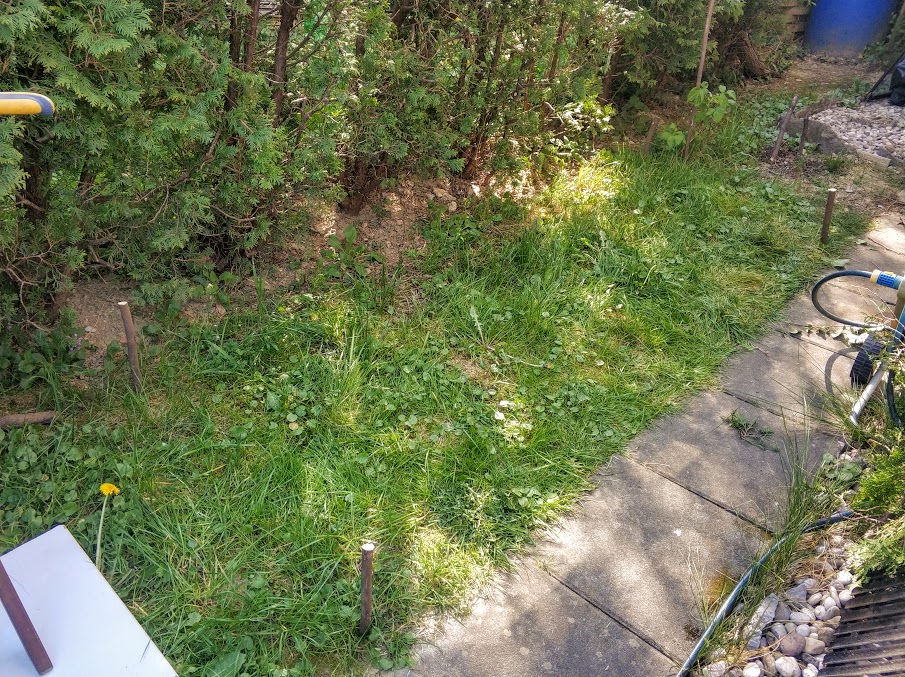
That part of the garden was never really dug or worked on. I know that the quality of the soil in my backyard is horrible because it's mostly rubble left over from when the building was constructed, covered with literally 5 cm of some poor soil. All those are the experiences obtained during my years of struggle to get the grass growing nicely. I was aware of the fact that turning that horrible soil was going to be a serious chore, as well as picking the leftover bricks, stones and pebbles and various bits of garbage out of it by hand. I had help with the worst part of the manual labour of putting the spade in the soil (I literally did it once myself!), and the photo below shows what the area looked like after the first step of the process was completed.
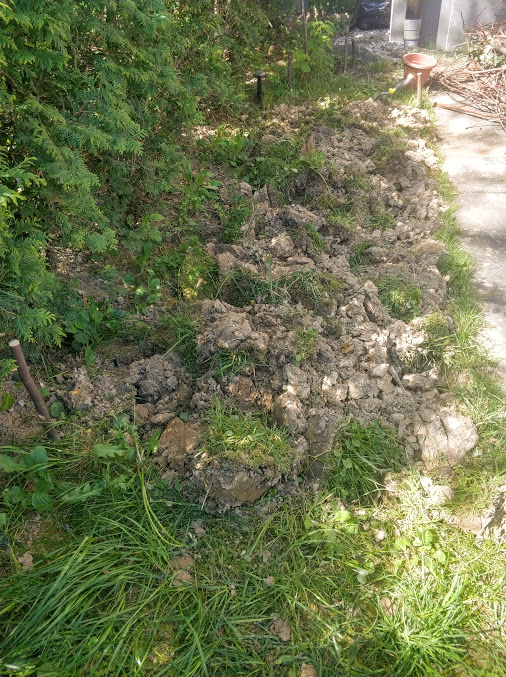
Oh, and yes, what am I going to grow there?! That was also not an easy decision and included several considerations. Of course, I'd love to have tomatoes and watermelon and stuff I really love. But, still, the silver lining of optimism took over, so I decided to dedicate this year to those plants which I'll be able to consume as soon as possible. I'm still somewhat hopeful that we'll be able to spend some time at the seaside, and I didn't want plants which will only become ripe later on in the summer, wasting away while nobody was home. I found the lokvina.hr webshop, where you can find wonderful detailed explainers on what to do with each type of seed and how long it will take before you can consume stuff from your garden. For this year, I chose carrots, spinach, zucchinis, rocket, swiss chard and parsley for my garden. All of them were delivered to my doorstep a day after I paid. I'm fully aware that the five varieties I picked are way too much for my small garden, but I have a contingency plan for the situation in which everything starts sprouting perfectly and my garden becomes too crowded.
Read about that and much more in upcoming articles in this series.
Plenković Says Measures to Reactivate Economy Will Be Appropriate, Safe
ZAGREB, April 21, 2020 - Prime Minister Andrej Plenković said on Monday that the government was making well-thought-out decisions in the context of the coronavirus epidemic and would also define measures to relaunch some of the economic activities in line with epidemiological standards.
The measures to relaunch some economic activities will be defined at a government session on Thursday, Plenković said, declining to specify those measures.
"Once the entire set is finalised, we will present it," he told reporters after a session of his HDZ party's presidency.
He did not agree with assessments that Croatia was late in adopting measures to restart economic activities, describing them as an attempt to exert pressure on the government.
"All the countries that announced a certain easing of restrictions, notably big ones, had the highest number of fatalities on the day when they expressed their hope that restrictions would be eased. We are not in such a situation nor do we have a large number of infections or fatalities. Our decisions are rational, well-prepared, based on experts' opinions and on a clear political estimate as was the set of measures designed to alleviate the impact of the crisis on the economic sector," he said.
He added that measures designed to reactivate some parts of the economic sector would also be well-thought-out and rational.
The government must not allow a situation in which it would be pressured into easing restrictions and then experience an upsurge in the number of infections, he warned.
As for President Zoran Milanović's comment that decisions in Croatia should start to be made at the political and no longer at the expert level, Plenković said that all decisions that had been made were also political decisions.
"One should distinguish between political decisions of the government and ministers and the so-called health-epidemiological framework, which is about adjusting certain measures in the interest of our citizens' health safety. The national civil protection authority did not just come out of the blue, it was established based on a government decision," he said.
He added that all members of the national authority were appointed to represent departments. "And those departments are government departments... decisions to be made by the government on Thursday will also be political decisions and then epidemiologists will fit them into a framework to prevent putting at risk all the achievements of the recent weeks," he said.
Plenković also said that the HDZ would give up 20% of its funds, from the tranche for the second quarter, to be used for the fight against the coronavirus epidemic.
More coronavirus news can be found in the Lifestyle section.
Employers Call for Immediate Reduction and Revocation of Parafiscal Taxes
ZAGREB, April 21, 2020 - The Croatian Employers' Association (HUP) on Tuesday called for the reduction of the 20 highest parafiscal taxes, whereas other parafiscal charges should be either revoked or reduced by 70%.
The HUP believes that during the coronavirus crisis it is high time that those charges were thoroughly analysed and most of them revoked or reduced.
The press release signed by HUP director-general Davor Majetić reads that the current crisis imposes an obligation on the authorities to remove all hurdles and costs that make doing business harder and affect the investment potential of companies in Croatia.
The HUP recalls that for the last twenty and odd years it has forwarded requests for the reduction of parafiscal charges to various governments.
"We have underscored on several occasions that those taxes should be suspended and then thoroughly analysed so as to reduce their number to a minimum and within the acceptable frameworks business-wise," Majetić was quoted as saying.
The HUP published a first list of parafiscal taxes in 2007 and the list contained 245 various charges. Since then their number has risen almost twofold.
The press release cites several examples of this burden on businesses in various sectors.
For instance, a manufacturer in the timber industry that employs 2,000 workers is expected to pay HRK 4.6 million kuna annually in parafiscal charges. They include HRK 123,700 as the annual membership fee of the Croatian Chamber of Commerce (HGK), taxes for preservation of listed building in the amount of 47,300 kuna, the television and radio subscription fee in the amount of 54,500, the fee for packaging waste management in the amount of HRK 65,200, water management tax in the amount of 52,500, forest parafiscal charges in the mount of 191,400.
Another example is an agricultural producer with about 100 workers on its payroll who is expected to pay nearly 380,000 in parafiscal taxes annually.
More economy news can be found in the Business section.
A Video Guide to the Best View in Dalmatia - on Hvar
April 21, 2020 - Hvar is blessed with beauty, nature, heritage and gourmet treasures, as well as the best view in Dalmatia. Now learn what you can discover in this view.
Reporting on the corona crisis has been a stimulating but very intense experience in the last couple of months, and I am not sure I would have survived without the great team at TCN. Having one nothing but work, work, work for as long as I can remember, I managed to take a half-day off on Sunday and went off to explore some parts of the beautiful island of Hvar.
And where better to relax than on the bench overlooking the very best view in Dalmatia?
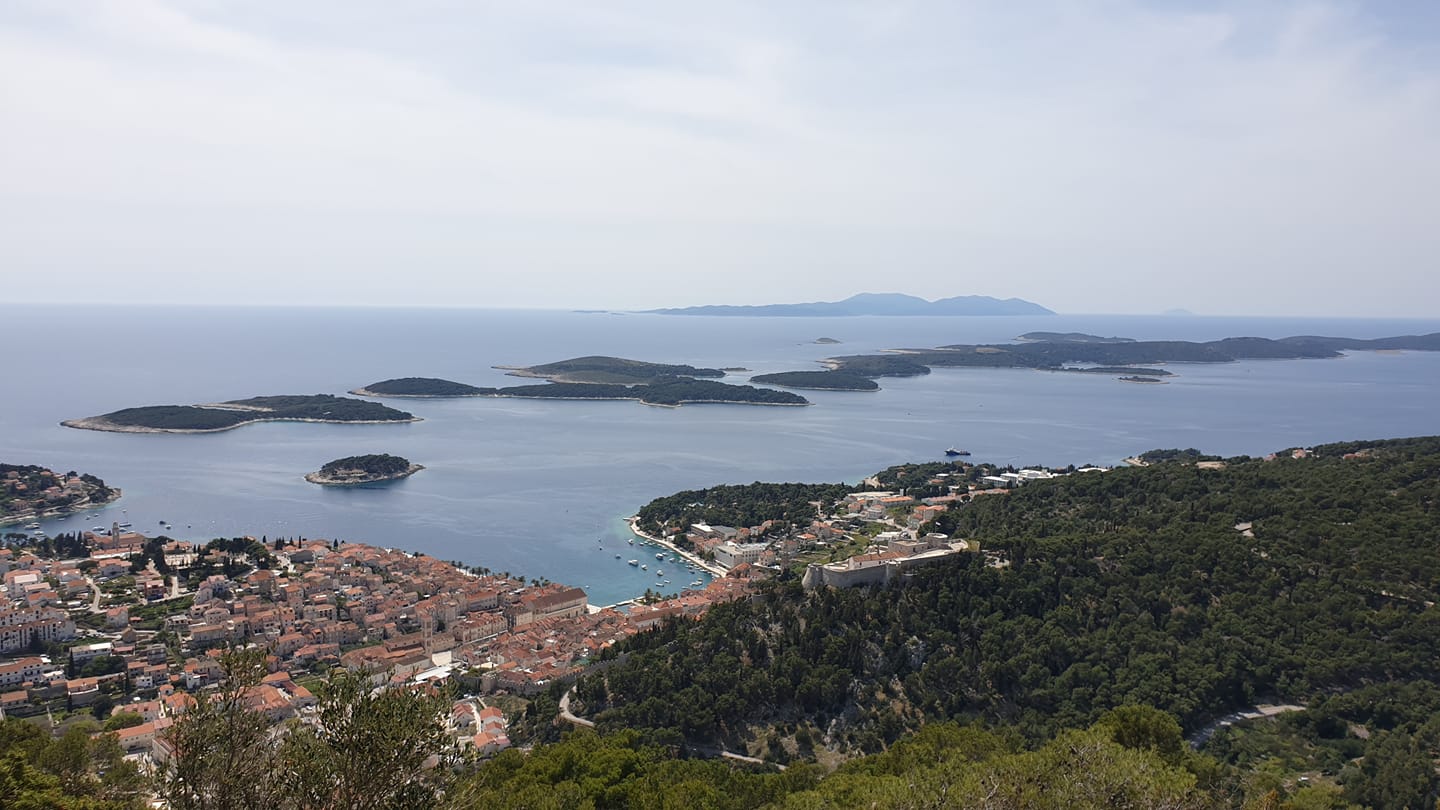
But while this is - at least in my opinion - the very best view in Dalmatia, how much do you know about what you are looking at?
In the latest from our new vlog, TCN talks, learn a little more about what is included in the view. Things to admire from afar now but to explore in detail on your next visit to Hvar include the oldest public theatre in Europe; the birthplace of organised tourism in Europe and the first 5-star hotel on Hvar; the largest square in all Dalmatia; CNN's top naturist beach in the world; one of the top nightclubs on the Adriatic; an eco-island which until recently had a permanent population of one donkey named Mercedes; an island with Hvar's main marina, and top quality restaurants that had Bono not only sharing on U2's Facebook page, but returning the next year; and an island with its own submarine base and the birthplace of cricket in Europe outside the UK.
All this, and much, MUCH more.
For this is the island of Hvar, and it is waiting for your visit.
For the latest news from Croatia's premier island and voted the best island in Europe by readers of Conde Nast Traveler last year, follow the TCN Hvar section.

